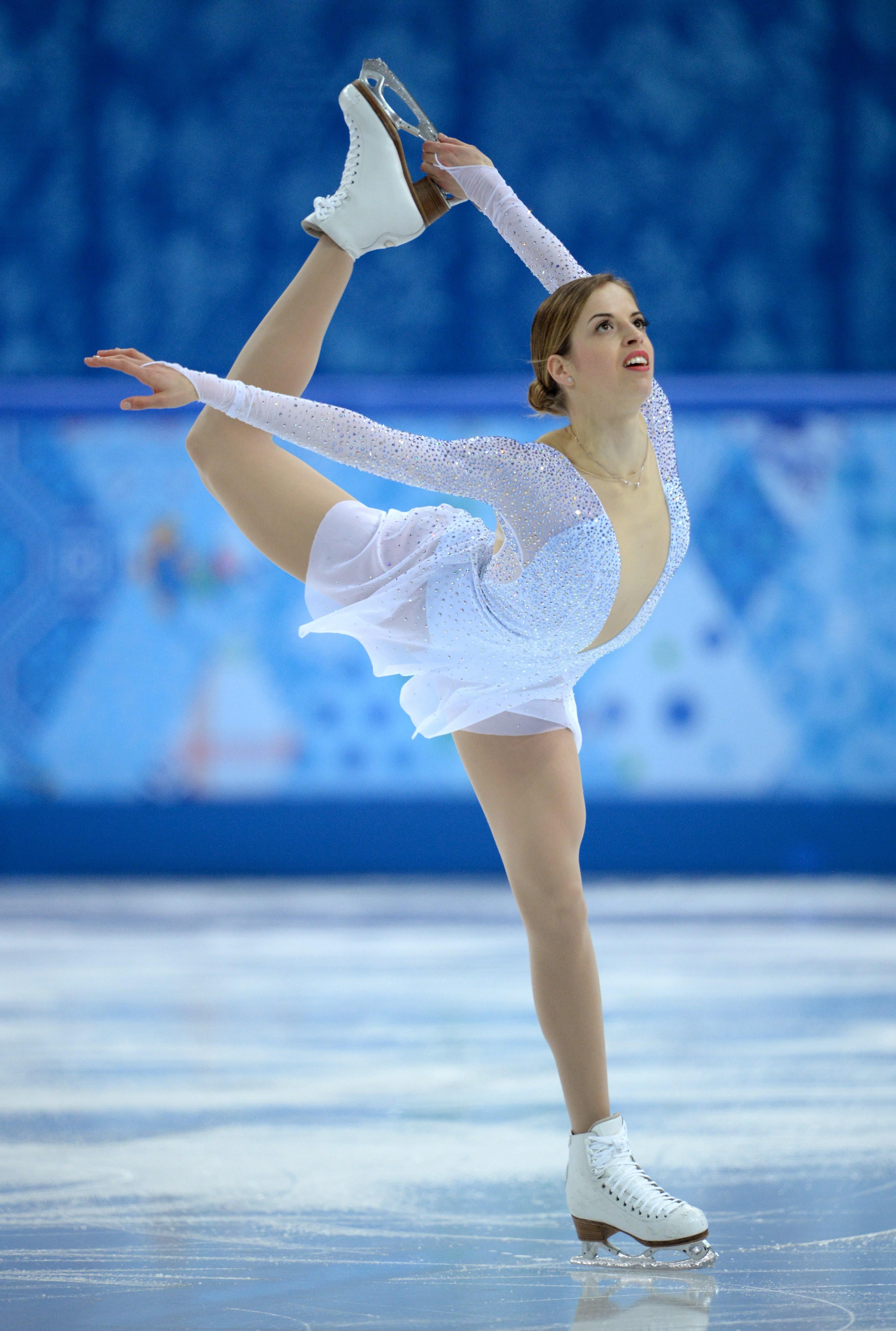Fans of women’s figure skating have come to recognize a recurring Olympic character, a tiny upstart who leaps over the heiress presumptive to the top of the podium before anyone can pull the tyro aside and remind her she hasn’t paid her dues. In 1994 it was Ukraine’s 16-year-old Oksana Baiul who floated past queen of adversity Nancy Kerrigan on a cloud of pink boa and painkillers. In 1998 it was 15-year-old Tara Lipinski who triple-loop-triple-looped her universally beloved teammate Michelle Kwan out of a gold. When Kwan tried again four years later, 16-year-old Sarah Hughes came out on top, seemingly to her own surprise.
The Lipinski of the Sochi Games was supposed to be 15-year-old Russian Yulia Lipnitskaya, whose combination of clean jumps, Gumby-on-a-whirligig spinning skills, home-ice advantage, and mien of impassive ultra-focus briefly gave her an aura of inevitability not seen since the USSR women’s gymnastics program of 1952 to 1988. After an astounding free skate that helped Russia win the team event (and that, even more impressively, managed to transcend the unforgivable kitschiness of its Schindler’s List theme), Lipnitskaya had a chance at upsetting Yuna Kim’s well-founded hopes of a second consecutive gold medal.
So when Lipnitskaya fell on a triple flip during the ladies’ short program in Sochi, my reaction—and, it seemed, the reaction of the crowd and NBC Sports’ commentators—was one less of empathic dismay and more of confusion, as if the tumble could be attributed to a fluky programming glitch. That’s not to say that Lipnitskaya is a “jumping robot,” an epithet that attached itself to Lipinski in 1998. It’s only to acknowledge that watching the youngest skaters in these competitions can leave one feeling deprived of suspense and danger—and a corresponding lack of emotional investment—simply because the youngsters often seem so terrifyingly unfazed.
It’s satisfying, then, that Sochi 2014 is shaping up as a triumph of relative veterans, women experienced enough to know that the Olympic stage should leave one very, very fazed. Coming out of the short program, Kim, 23, is in first place. Italy’s Carolina Kostner, who’s 27 and an Olympic bridesmaid all the way back to 2006, is in third. Between them is Russia’s overlooked Adelina Sotnikova, who sat out the star-making team event and is, in relation to her teammate Lipnitskaya, a grizzled pro at 17. Lipinski, now an NBC commentator, remarked approvingly that Sotnikova appeared to be “skating angry.” Kim, for all her pre-Sochi talk of the pressure being off now that she’s already won Olympic gold, looked petrified as she waited for her music to begin and looked relieved when it was over. Messy emotions might make for messy performances, but in these cases, they seemed to serve the athletes well.
Before the last competitor skated in the short program, I had already assigned her a place in my triumph-of-the-veterans narrative. Japan’s Mao Asada narrowly lost her shot at being the 15-year-old dynamo of the 2006 Olympics, as she missed the age cutoff by 86 days; before, during, and after Vancouver, she’s tended to take a back seat to her great rival Kim. I love Asada for her triple axel and her Baroque expressiveness and her love of spookily bombastic Russian compositions and her vampire couture and because she’s the only skater past or present I can imagine choreographing a routine with a Black Lodge theme. But I love her most because, on both good days and bad, she so visibly communicates a roiling and fathomless inner life.
This is where the tidy narrative falls apart: Asada’s short program in Sochi was a disaster, a disaster that, admittedly, was foretold by her recent shakiness and fall during the team event. She is 16th—16th! Mao Asada!—going into the free skate. She’s retiring soon, and I hope she performs her long program like she has nothing to lose. Either way, we’ll always have the 2010 worlds.
